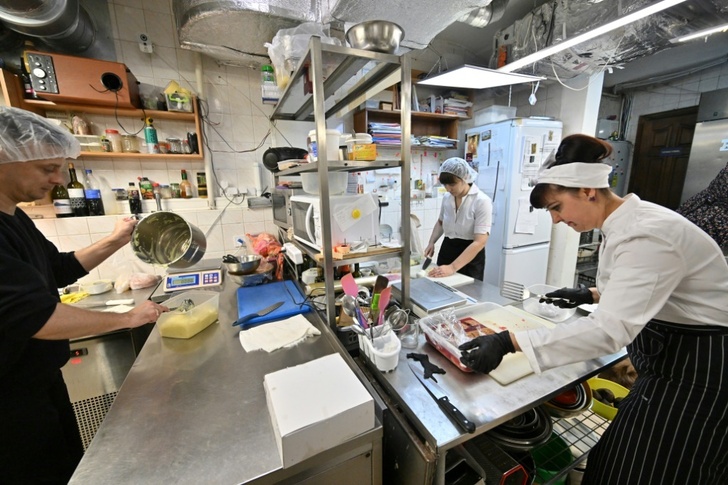There are two items that have long been fixtures on Tetyana Mytrofanova's New Year's Eve menu: shuba, a salad of pickled herring and root vegetables; and a potato salad known as Olivier.
But their status as classic Russian dishes has made them unpalatable in wartime, forcing Mytrofanova and other Kyiv restaurateurs to find alternatives for one of the year's most festive holidays.
"We have to turn the page," the 58-year-old said from a booth at Chasing Two Hares, her eatery cum live music venue, which hosts a raucous party every December 31.
"What is happening in our country now affects our relationship with the world, and we have to be modern."
Food has been a front in the conflict between Ukraine and Russia since well before Moscow's invasion began in February.

The war this year has only raised the stakes, with expressions of Ukrainian patriotism expected to enliven menus in and beyond the capital as 2022 ticks over to 2023.
"This is the first year we have given up the Olivier salad and the shuba," said Mytrofanova. An updated edition of New Year's Eve offerings will instead spotlight what she described as traditional Kyiv dishes such as stuffed pike.
"I know that the people who spend this night with us will remember it forever."
- 'Psychological reboot' -
The new menu is hardly the most significant contribution to the war effort by Chasing Two Hares, named for a 1961 Soviet comedy film that plays on screens in the dining room.
Like other restaurants in the city, it has sought to help Kyiv residents and Ukrainian forces since shortly after the first bombs fell.
Within a week, Mytrofanova said, Chasing Two Hares was feeding hundreds of people who were short of food.
And soon, they began sending aid to a military unit that resisted the Russian advance in Gostomel, northwest of the capital.

She teared up when describing three recent fatalities in the unit. "For me, it's like my own losses."
More recently, her kitchen has been preparing holiday cakes -- baked in the shape of a lamb -- to send to the troops.
And just this week, one of her line cooks was called up himself and headed off for military training.
The New Year's Eve party is an opportunity for "a psychological reboot", Mytrofanova said. "This will not be some kind of Sabbath," she said.
With an 11:00 pm to 5:00 am curfew in place, guests will need to commit to staying all night, but most will not mind, said Mytrofanova.
In past years, "People always stayed with us until three or four in the morning, so staying here for another hour or two will not be a problem.
"When people come to us, they enter another dimension... Time passes imperceptibly."
- Leaving Russia behind -
Chef Natalia Khomenko said she relished the chance to strip the menu of offerings strongly associated with Russia.
"It is right and it is possible. We have replacements and we have something to provide," she said.
"The demand is for something like a coat, sewn from our own material."
Pizzeria Avtostantsia, in Kyiv's historic Podil neighbourhood, had something similar in mind when preparing its own New Year's Eve selections.
Like Chasing Two Hares, the restaurant scrapped shuba and the Olivier, replacing them with beetroot hummus and Forshmak, a dish from the Ukrainian city of Odessa made of chopped smoked mackerel, potatoes, sour cream, onions and peppers.
Rounding out the menu is duck terrine, liver cake, lasagna and a dessert of chocolate cake with dates.

Because they only got hold of a generator this week, the chefs did not have time to master the new dishes, so they will instead be unveiled for Orthodox Christmas in early January, she said.
"We have a lot of traditional Ukrainian dishes, so we don't need the Russian ones," Selezen said.
"We can live without it. We should have done it earlier."
And while she will miss shuba, a personal favourite, Selezen said she had no regrets.
"There are a lot of other salads you can make," she said.
rcb/acl/jj
© Agence France-Presse
Your content is great. However, if any of the content contained herein violates any rights of yours, including those of copyright, please contact us immediately by e-mail at media[@]kissrpr.com.
Source: Story.KISSPR.com

